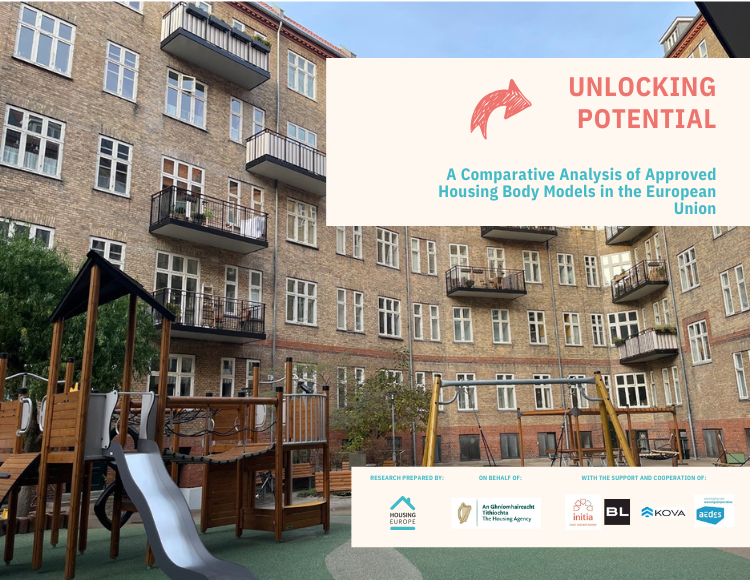This report looks at the way different independent, not-for-profit organisations – Approved Housing Bodies (AHBs) – operate in four areas of Europe to deliver affordable housing. These organisations are not directly part of the state, in contrast to, for example, local authority housing departments.
Written by Housing Europe and commissioned by the Housing Agency of Ireland, it is one part of the much larger strategic review of the Approved Housing Bodies (AHBs) in Ireland. It compares and contrasts the Irish experience with that in Belgium (Flanders), Denmark, Finland and the Netherlands.
The right approach depends on the local context
A clear message emerged from the analysis: social goods like social housing must reflect a multitude of influences including history, economics, politics, and demographics that are unique to each area.
We found a plurality of approaches, and that there is no one-size-fits-all approach to the delivery of social housing by AHBs; what appears to work in one country may not be appropriate in another.
While complex, that means that for countries interested in adapting their existing system of social housing provision there is a broad menu of options to choose from and a range of experiences to learn from.
The benefits of specialisation and seperation
One of the benefits of AHBs highlighted in this review is that these housing providers provide specialist expertise. Bodies which are dedicated to the provision of housing build up knowledge and experience, which can be difficult for generalist services to achieve.
Governments may prefer to keep social housing provision wholly or partly under the auspices of the state in the belief that leaving this important task to independent provider would mean giving up control over an important public policy lever.
However, the four case studies in this report show us that this is not the case. There are different ways to structure housing providers which allow the state to retain ultimate control of independent or arms-length bodies, as demonstrated in Flanders and Finland.
In Denmark and the Netherlands, the state exerts less direct control, but still manages to use legislation and other requirements placed on housing providers to ensure a strong degree of complementarity with other areas of public policy.
In some cases, using AHBs means that homes remain “off-book” or ‘off balance sheet’ from a public debt and budget deficit point of view. The 2018 decision of Eurostat to declare the liabilities of Irish AHBs to be on-balance sheet has been consistently cited by the Irish Council for Social Housing (ICSH), as being a challenge to their members’ capacity to grow as quickly as would be required to more adequately address the current shortfall in social housing provision in the country. This is also a concern of the on-balance sheet Flemish social housing sector. One of the ways that the Danish and Dutch housing providers have managed to remain off-book has been through their relative financial independence from the state.
